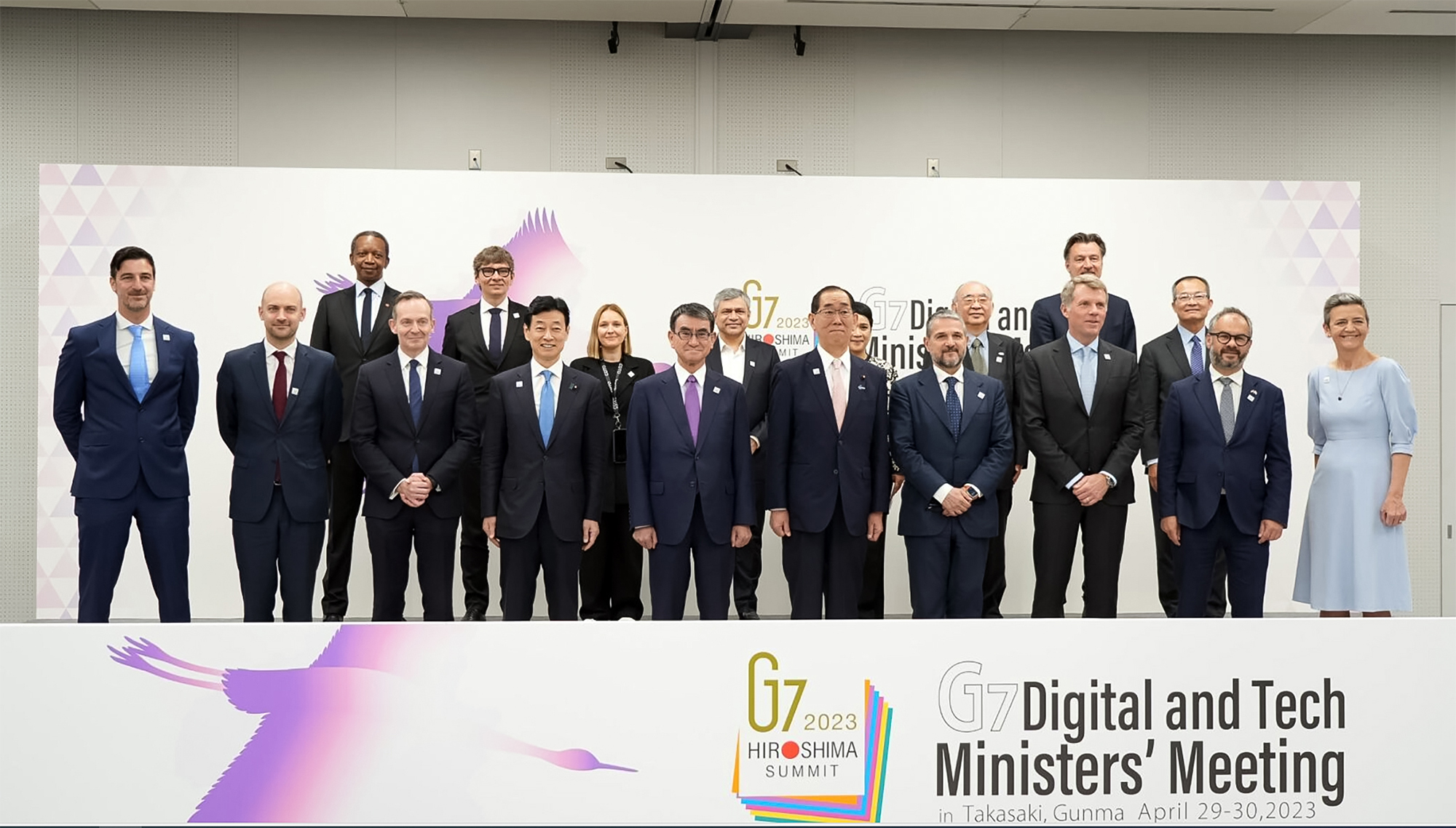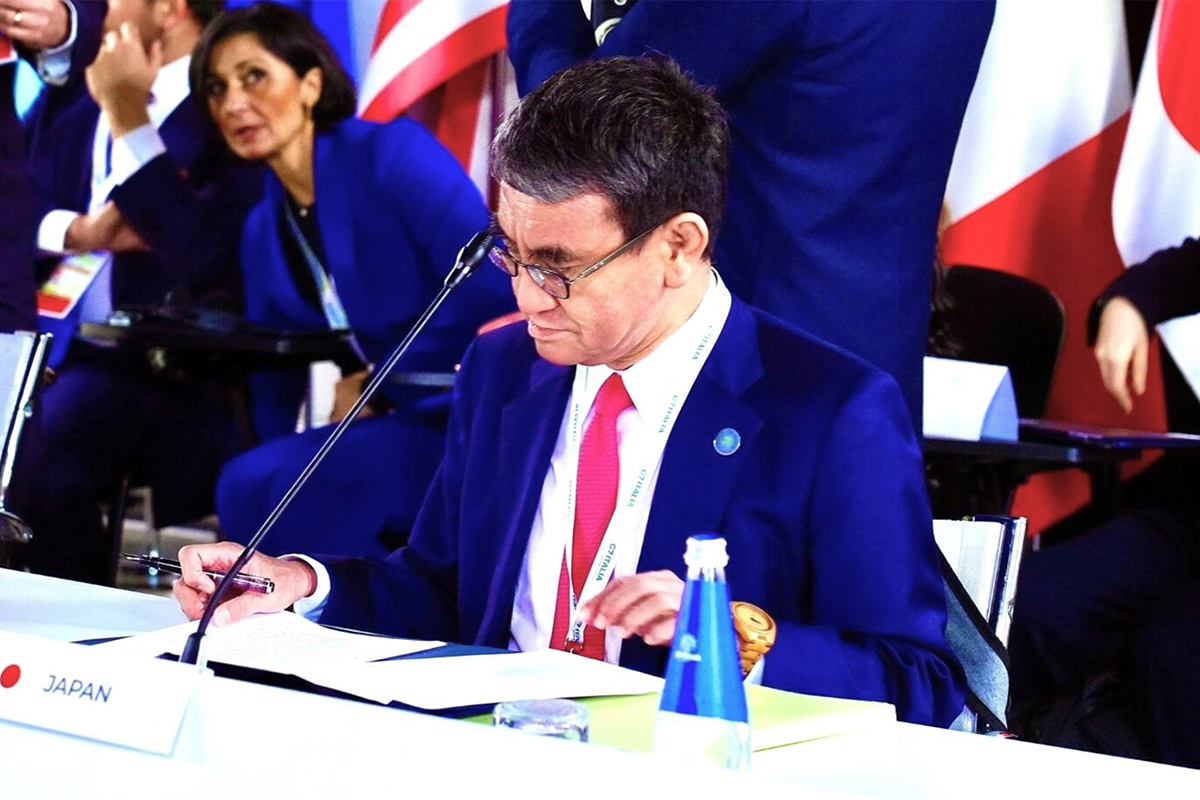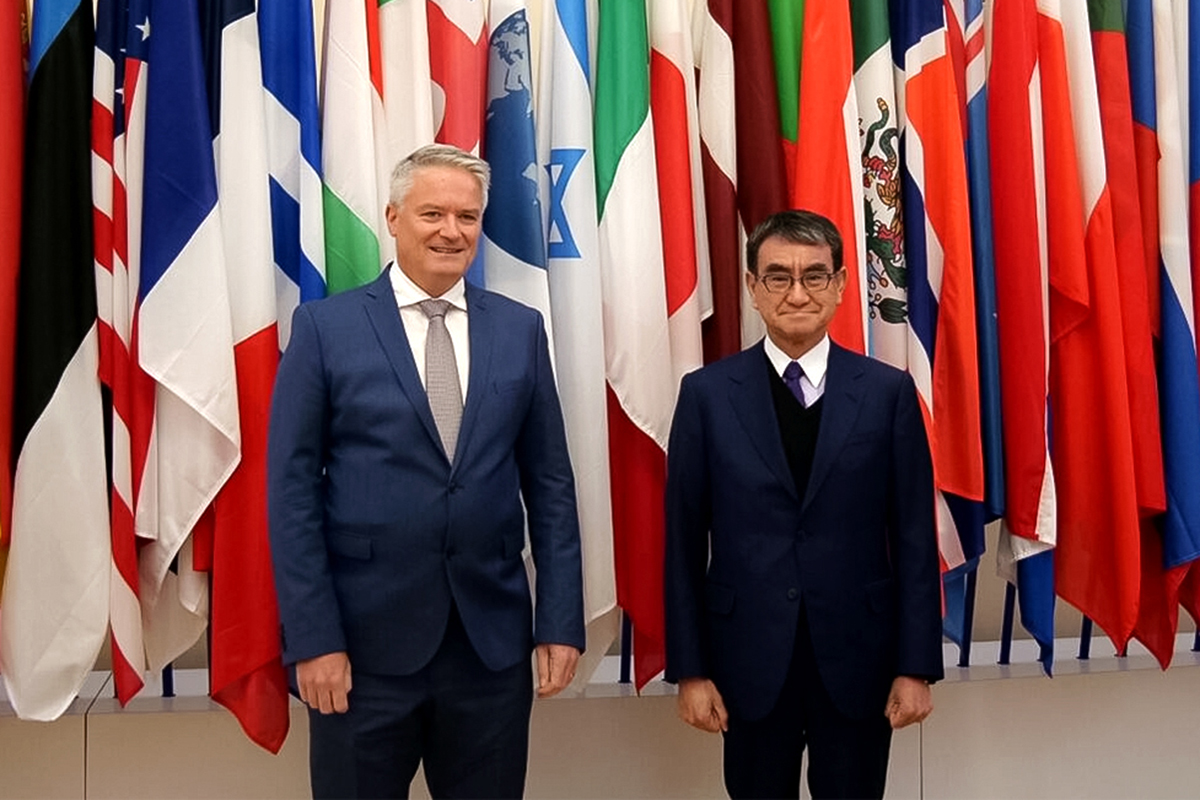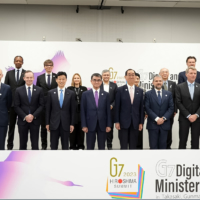In today’s digital-driven economic and social environment, having stable and reliable access to both domestic and international data is essential for the growth of Japan’s economy.

The Japanese government has taken the initiative to address the challenges faced by companies, such as fragmentation of data regulations and data localization requirements. The establishment of the Institutional Arrangement for Partnership (IAP) was endorsed by the G7, the group of leading industrialized nations, during the Japanese presidency in 2023. The IAP, which is under the umbrella of the OECD, aims to promote international coordination to address issues related to cross-border flows of data. Various projects will be undertaken by the IAP to promote international data governance.
Due to the significance of data, many governments are introducing regulations to safeguard sensitive data. For instance, the U.S. has issued a presidential decree on sensitive data, and Congress is currently debating legislation that would prohibit certain types of applications from collecting personal data. The EU has implemented the General Data Protection Regulation, which essentially bars the transfer of personal data outside of the European Economic Area.
Keidanren and other industrial groups have emphasized the importance of legal transparency and regulatory and policy coordination for cross-border data flow among nations. This is essential as the number of laws, rules and regulations and implementation guidelines on data is on the rise in most countries, and there will not be unified global codes on data, raising the cost of compliance.
Certain countries impose arbitrary and unpredictable restrictions on the transfer of data collected within their borders to other countries. Known as data localization, this can hinder the development of products and services that rely on the immediate use of data.
For example, Komatsu, a leading manufacturer of construction and mining equipment, has products that can be monitored remotely. Through internet-connected sensors installed on their vehicles and equipment at work sites, customers and distributors can visualize information such as operating status, maintenance needs, fuel consumption, carbon dioxide emissions and more. By collecting and analyzing this information, Komatsu can offer advice to customers on when to service the equipment, change parts or how to use the machine more efficiently, improving its business value. There are other companies and industries that offer similar services, however, data localization could prevent all of them from providing such services in a country that imposes restrictions on data collection.
The introduction of international regulations could be a data-related issue. The International Sustainability Standards Board has finalized standards for disclosing sustainability risks, including climate change. The working group under the Financial Services Agency’s Financial System Council is currently reviewing the scope of the standards, which may affect about 1,650 Japan Exchange Group Prime-listed companies and their business partners. However, many Japanese industries have not yet developed an infrastructure for aggregating data across supply chains. Therefore, there is an urgent need to establish rules and systems to facilitate this process.
The EU has been quick to develop a data-sharing infrastructure, known as data spaces, for companies to share data with each other. While it is essential for Japanese companies to comply with local regulations, they may still face many challenges. If Japanese corporations are required by the regulations to transfer data from factory production lines to prove regulatory compliance as a condition for EU market access, they may be forced to release information containing key technologies unless they take appropriate measures.
Addressing issues related to data governance requires international cooperation, as no single government can solve these challenges alone. While different visions and approaches to data and privacy protection should be respected, it is important to increase interoperability among nations with different data regimes.
The Japanese government, while addressing concerns related to privacy, security and intellectual property, strongly promoted and supported Data Free Flow with Trust (DFFT) in various international forums, such as the G7 and G20.
The G7 Digital and Tech Ministers’ Meeting in Takasaki last April and the Hiroshima summit last May endorsed the establishment of the IAP, which was being developed under the OECD. The direction and road map for the IAP will be discussed at the upcoming annual OECD Ministerial Council Meeting.

The IAP is a mechanism that facilitates multistakeholder, public-private and interorganizational cooperation to seek realistic and effective solutions to data governance issues.
The expected outcomes may range from developing guidelines, principles, reports and technical cooperation to proposing that member states comply with OECD recommendations. The IAP also intends to take up projects on emerging technologies.
The use of privacy-enhancing technologies (PETs) may be required when dealing with personal data or trade secrets. PETs can be used to keep such data anonymous during analysis. Their actual use, however, requires understanding of both the technology and the privacy regulations of all the countries involved. This can be achieved through a multilateral “regulatory sandbox.”
In addition, Japan will support collaborative projects with non-OECD countries, especially those in the Association of Southeast Asian Nations (ASEAN). The Digital Agency recently proposed collaboration with the IAP to ASEAN’s digital ministers, and the proposal was met with considerable enthusiasm and support.

The proposed collaboration aims to increase transparency on regulations on cross-border data flows in both ASEAN and OECD countries. The joint initiative will lead to the creation of a common repository with state-of-the-art technology to provide up-to-date information and transparency on national data regulations. The Economic Research Institute for ASEAN and East Asia is expected to lead the project.
The OECD can profit immensely from collaborating with Asia, a major driver of global economic growth, and we hope to establish a positive precedent for international data governance development.
Sharing data across countries and regions is essential for our future prosperity. However, no other organization is working on international data issues among so many countries but the OECD. Working closely with the OECD, Japan is committed to representing the voices of stakeholders in shaping international data governance. This will be one of the top priorities for Japan’s digital strategy.







